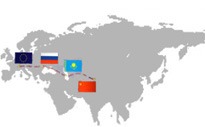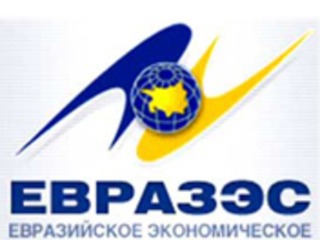Massive East-West Transit Corridor Nears Crucial Phase
By Richard Weitz (the 11/12/2013 issue of the CACI Analyst)
The Western Europe-Western China International Transit Corridor aims to improve the efficiency and safety of the main roads between China and Europe that pass through Kazakhstan. Despite the international focus on promoting rail traffic through Eurasia, it is also important to build better roads since Central Asian countries can more easily input their goods through them than through railways. The roads also promote short-distance trading within and among Central Asian countries. Otherwise, extra-regional actors will simply see and treat Central Asia as a transit zone for their transcontinental railways, which would not provide additional incentives to invest in Central Asian economies.

SocioEconomic Situation in Kazakhstan's West Remains Unstable
By Georgiy Voloshin (the 11/12/2013 issue of the CACI Analyst)
After the violent riots of oil industry workers rocked in Kazakhstan’s Zhanaozen in December 2011, marring the celebration of the 20th anniversary of the country’s independence, Kazakhstani authorities have been at pains to stabilize the situation there. According to official figures presented this September, the government has since January 2012 allocated some US$ 90 million for socioeconomic needs in the Mangistau region, where riot police killed at least 14 people and wounded over 100 others during the Zhanaozen protests. Most of the funds have been directed to the creation of new jobs and the implementation of social support programs, for instance in establishing the necessary infrastructure.
“CACI Analyst, November 27, 2013”
Kazakhstan Increasingly Concerned over Eurasian Economic Union
By Stephen Blank (the 27/11/2013 issue of the CACI Analyst)
Kazakhstan joined the Customs Union with Belarus and Russia in 2010 and by 2012, it had evolved into a single Eurasian Economic Space known also as EurAsEc. The economic union is Putin’s principal foreign policy goal and Ukraine in the West and Kazakhstan in the East are particularly important to the success of this enterprise. Yet, while Ukraine was poised to instead sign a trade agreement with the EU at the Eastern Partnership summit in Vilnius on November 28-29, it has stopped preparing for that signing ceremony, evidently succumbing to Russian pressure. Meanwhile, Kazakhstan has now registered increasingly vocal complaints about the direction EurAsEc is taking.

Russia and Kazakhstan Clinch “Alliance for the 21 Century”
By Georgiy Voloshin (the 27/11/2013 issue of the CACI Analyst)
On November 11, the presidents of Russia and Kazakhstan, Vladimir Putin and Nursultan Nazarbayev, met in the Russian city of Yekaterinburg within the framework of the Tenth Regional Cooperation Forum. This bilateral structure aims to develop closer economic and trade relations between Russia’s and Kazakhstan’s border regions, especially in the context of growing integration ties between the two countries. While the general state of Russian-Kazakhstani partnership was the major topic of official discussions, this gathering enabled the signing of a new bilateral treaty known as the Treaty for good-neighborliness and alliance in the 21 century.


